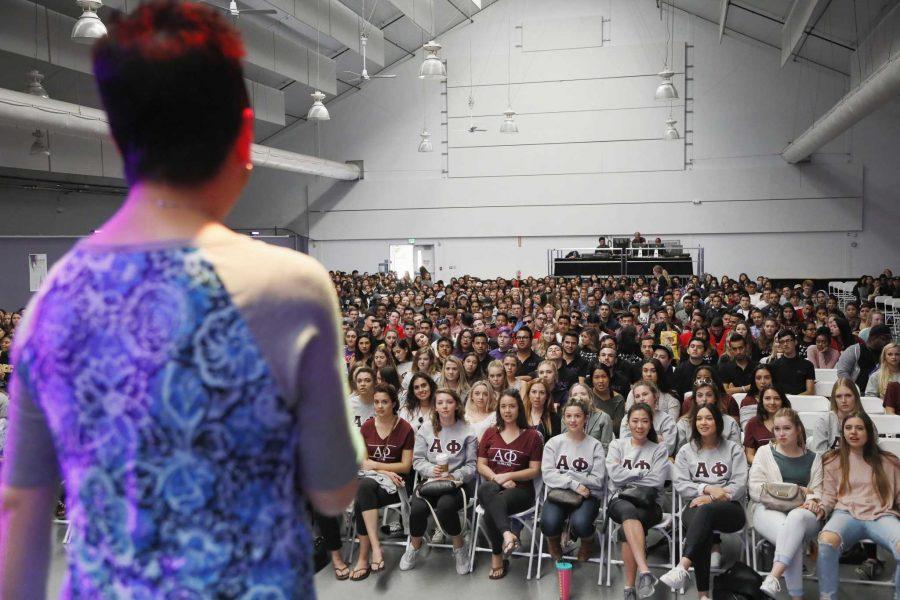SF State’s Greek Summit included mandatory training last week to better educate Greek organizations on sexual violence and sexual assault response protocols. It has been found that fraternities and sororities are much more likely to be involved in sexual violence incidents on campus, and the annual event is an attempt to help prevent such situations.
It is the SF State’s second year training members of Greek organizations to “better and more effectively promote gender equity and campus safety,” according to an email sent to all Greek chapters by campus Greek Advisor Monolito Twyman. The training has been mandatory for all sororities and fraternities since 2014.

The email also mentioned consequences for organization members who miss the training.
“The organization will be put under suspension and stripped of any resources they were entitled to, such as tabling on campus, room requests and fundraising,” said United Greek Council President Evan Gothelf.
Luoluo Hong, Title IX coordinator and vice president of student affairs, led the training, beginning the presentation with statistics showing members of Greek life being at higher risk for being involved in incidences of sexual violence. Hong covered many other topics that fall under the Title IX umbrella, such as defining the various terms of sexual misconduct, the response protocols for victims of sexual assault, resources available on campus for victims and how Greek leadership can make a potential impact in preventing incidences.
Hong said sexual violence is more likely for chapters who have campus housing, but said SF State is fortunate since the University does not allow fraternity and sorority houses on campus.
Under the Jeanne Clery Act, universities are required to provide information to students when crimes happen on campus or within a certain radius and to provide an annual report at the end of each year.
“Last year there were eight sexual offenses, four incidences of sexual violences and four stalkings reported that took place on campus that fit the Clery definition,” Hong said.
However, all Title IX investigations take place in the student affairs department whether or not the incident actually took place on campus. If the victim is a current SF State student, the department records it as an incident after it is reported.
In the 2014-2015 Title IX report, the department received 85 reports of sexual violence that were reported through the Title IX process. The numbers become significantly higher when all reports of sexual violence are included, regardless of where it occurred.

The next updated Title IX annual report for 2015-2016 will be available shortly after October 1, mentioned in an email by Hong.
A few faculty members who were at the event were also members of Greek organizations
during their undergraduate career, including Hong herself, Greek Advisor Monolito Twyman and Assistant Dean of Students Brian Stuart –– all of whom believe in the value of Greek life.
“If it wasn’t for the fraternity I joined at Chico State, I probably wouldn’t have made it,” said Stuart at the podium. “I just want to put it out there how important Greek life is because it really has changed lives. It really does make or break someone’s experience here.”








